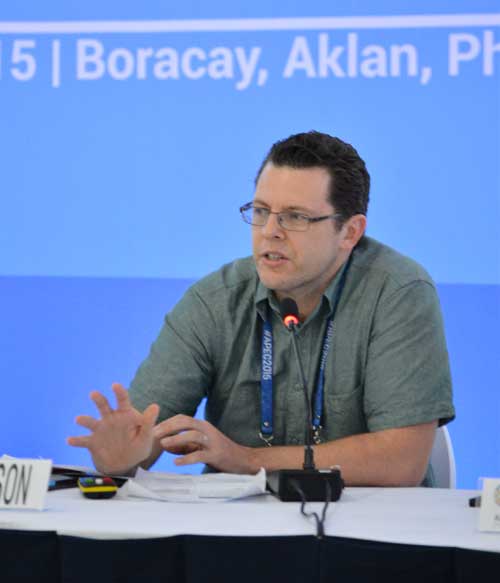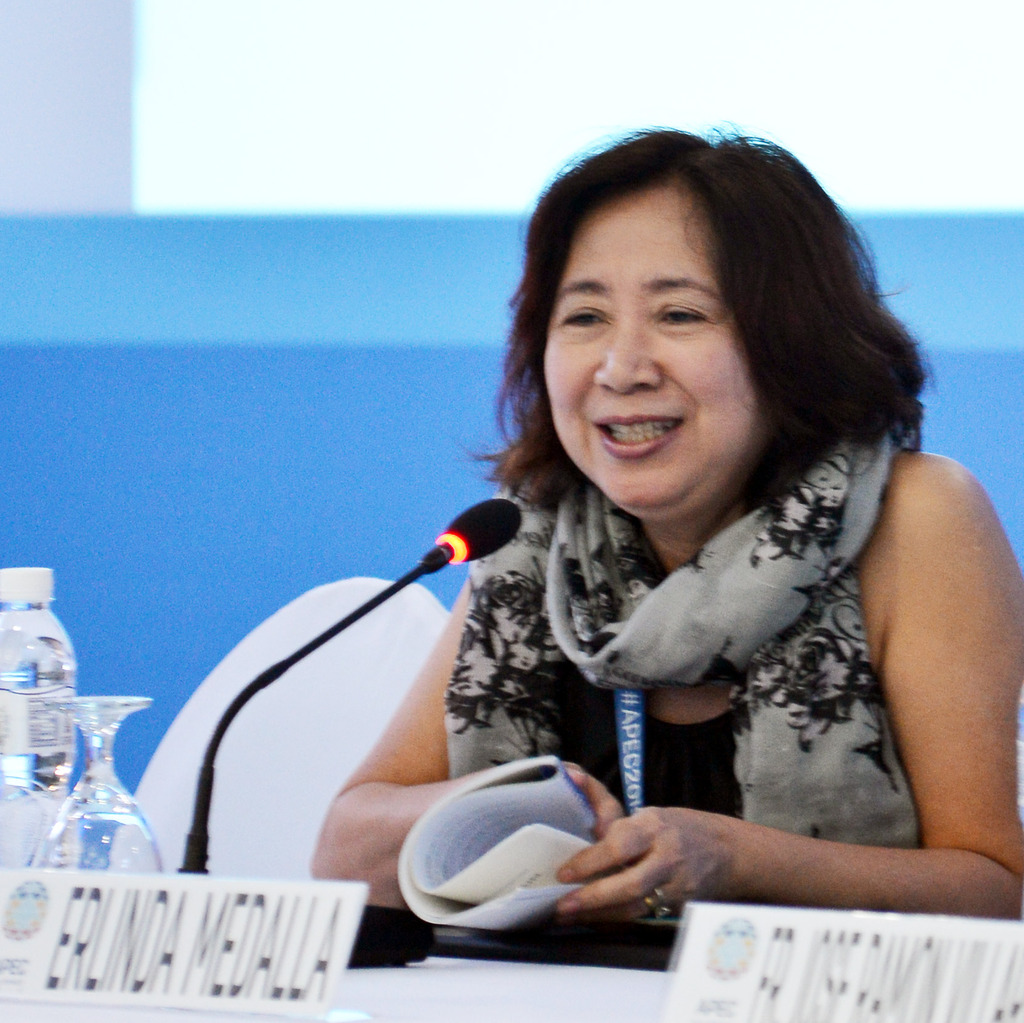APEC urged to enhance supply chain connectivity to boost cross-border trade
 Policy researchers at the APEC Study Centers Consortium (ASCC) Conference 2015 held on May 12-13 in Boracay Island deliberated on the importance of enhancing trade and investment patterns and supply chain connectivity to fully reap the benefits of global value chains.
Policy researchers at the APEC Study Centers Consortium (ASCC) Conference 2015 held on May 12-13 in Boracay Island deliberated on the importance of enhancing trade and investment patterns and supply chain connectivity to fully reap the benefits of global value chains.The conference was part of the Second Senior Officials Meeting (SOM2) and Related Meetings of APEC 2015. It was organized by state think tank Philippine Institute for Development Studies and the Philippine APEC Study Center Network in collaboration with the Ateneo de Manila University and the Asian Development Bank Institute.
Credit rating system may decrease banks` aversion to small business lending
 Access to finance is the lifeline of small and medium enterprises (SMEs). Majority of Asian economies, however, have bank-dominated financial systems that are cautious to lend to SMEs despite their contribution as source of more than two-thirds of jobs in the Asia-Pacific Economic Cooperation (APEC) region.
Access to finance is the lifeline of small and medium enterprises (SMEs). Majority of Asian economies, however, have bank-dominated financial systems that are cautious to lend to SMEs despite their contribution as source of more than two-thirds of jobs in the Asia-Pacific Economic Cooperation (APEC) region.
This challenge confronting SMEs was underscored by policy researchers present at the APEC Study Centers Consortium (ASCC) Conference 2015 held on May 12-13 in Boracay Island. Organized by state think tank Philippine Institute for Development Studies and the Philippine APEC Study Center Network, in collaboration with the Ateneo de Manila University and the Asian Development Bank Institute, the conference was part of the Second Senior Officials Meeting (SOM2) and Related Meetings of APEC 2015.
CONFERENCE BOOKLET AND SUMMARY REPORT/PROCEEDINGS
Australia’s model of disaster funding useful for disaster-prone APEC countries
 The increasing frequency and intensity of natural disasters could seriously hamper the efforts of economies gearing up for higher and sustained growth. Policy researchers who attended the APEC Study Centers Consortium Conference 2015 held on May 12-13 in Boracay Island underscored that it is time for governments to have provision for disaster funding.
The increasing frequency and intensity of natural disasters could seriously hamper the efforts of economies gearing up for higher and sustained growth. Policy researchers who attended the APEC Study Centers Consortium Conference 2015 held on May 12-13 in Boracay Island underscored that it is time for governments to have provision for disaster funding.Repeated disasters constrain public finances and contribute to the cycle of poverty in affected communities. A disaster-prone country like the Philippines has an average of 20 typhoons each year; five of these are likely to be devastating. The Philippine government has estimated that for the past 30 years, direct losses alone from natural disasters account for an average annual loss of 0.7 percent of gross domestic product, which can be mostly attributed to typhoon losses and damages. Located in unsafe urban settlements, the poor suffer the most. Disaster funding is therefore crucial for both poverty alleviation and sustained economic development.
APEC researchers propose options to expedite plans for a free trade area
 Discussions of possible pathways to the Free Trade Area of the Asia-Pacific (FTAAP) were one of the highlights of the recently concluded APEC Study Centers Consortium Conference 2015 held on May 12-13 in Boracay Island.
Discussions of possible pathways to the Free Trade Area of the Asia-Pacific (FTAAP) were one of the highlights of the recently concluded APEC Study Centers Consortium Conference 2015 held on May 12-13 in Boracay Island.In promoting and advancing regional economic integration, APEC seeks to create a community that is more economically integrated, where goods, services, and people move seamlessly across borders, and a dynamic business environment is further enabled. This is what APEC is hoping to achieve with the FTAAP.




